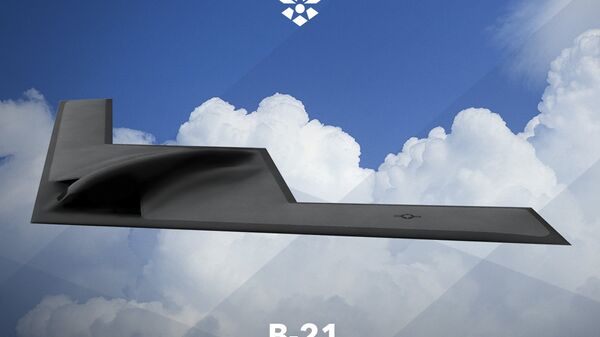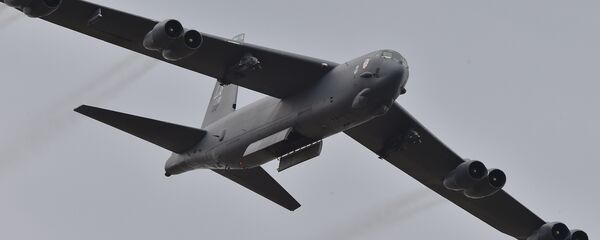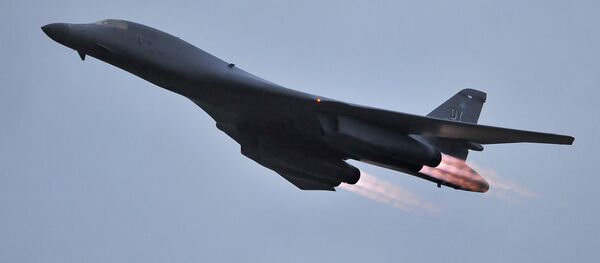During a discussion panel between three generals led by Rep. Mike Gallagher (R-WY), Lt. General Jerry Harris, Air Force deputy chief of staff for strategic plans, programs and requirements, said that based on Washington’s war plans, 165 of the bombers "is probably what we need to have."
Gallagher asked the panel about a 2015 Mitchell Institute report called "US Bomber Force: Sized to Sustain an Asymmetric Advantage for America."
The report concluded that "Maintaining America’s asymmetric advantage in long-range precision strike over any potential future adversary requires a modernized and capable bomber force of 150 to 200 aircraft," and that "The aging-out of the B-52 and B-1 fleets, combined with the increasingly sophisticated threat environment, drives the nation to make an immediate investment to procure a minimum of 100 new long-range strike bombers to ensure the bomber fleet can accomplish the full range of its assigned nuclear and conventional missions."
It also estimates that a war with North Korea would require 60 bombers, Iran would take 103 and Russia would require 258, based on the length of the campaign, the number of bombs and targets needed and the rate of sorties that the aircraft could handle.
Harris said the study’s numbers "aren’t incorrect," and that the Air Force didn’t want to preempt US President Donald Trump’s new National Military Strategy.
This analysis comes as the Pentagon attempts to determine how much information about the next-generation weaponry should be public and how much should be classified.
On May 15, Lt. Gen. Arnold Bunch, military deputy of the Office of the Assistant Secretary of the Air Force, told reporters that the Air Force hopes to "balance program classification with the transparency we are shooting for to make sure we are not releasing too much or hindering too much information flow. They are analyzing what should be released," according to Scout Warrior.
The service is trying to walk a delicate line to maintain enough transparency for Congress to oversee the operation without inadvertently making sensitive information known to adversaries.
Virginia based manufacturer Northrop Grumman was awarded the contract to engineer the new bombers, which ultimately will replace the B-2.
Bunch told Scout Warrior last year, "With LRS-B [B-21], I can take off from the continental United States and fly for a very long way. I don’t have to worry about getting permission to land at another base and worry about having somebody try to target the aircraft. It will provide a long-reach capability."




